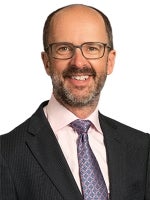It has been alleged that Cambridge Analytica, a political data analytics firm specialising in psychological profiling, has tapped more than 50 million users’ Facebook profiles without their consent and subsequently used the data to assist Donald Trump’s 2016 electoral campaign.
Facebook has since explained that Dr Aleksandr Kogan, a psychology academic at the University of Cambridge, created an app in 2015 which purported to provide ‘personality predictions’ to users based on information contained in their Facebook profiles. Over 270,000 people downloaded Kogan’s app and gave consent for Kogan to access information such as content they had liked and their friends list. However, in violation of Facebook’s Platform Policies, Kogan passed this data onto Cambridge Analytica (among others). Facebook alleges that Cambridge Analytica provided assurances in 2015 that this data had been deleted, but became aware a number of days ago that it had not been.
Christopher Wylie, a former Cambridge Analytica employee (who blew the whistle on this alleged breach) reported that Cambridge Analytica “exploited Facebook to harvest millions of people’s profiles” and in particular to “target their inner demons” throughout Trump’s electoral campaign. Trump’s administration have since downplayed its involvement with the Cambridge Analytica, stating that it briefly used the company for television advertising.
Facebook has maintained that there was no ‘data breach’ – people knowingly provided their information, no systems were infiltrated, and no passwords or sensitive pieces of information were stolen or hacked. Despite this, the Office of the Australian Information and Privacy Commissioner seems unconvinced. The Commissioner released a statement yesterday in which he explained that his office is making inquiries with Facebook to ascertain whether any Australian users’ personal information was involved and emphasised that further regulatory action against the social media giant is not out of the question. Other investigations are occurring around the globe and it may be that some co-operation will occur between regulators as has occurred previously.
Samantha Tyrrell contributed to this post.




 />i
/>i

